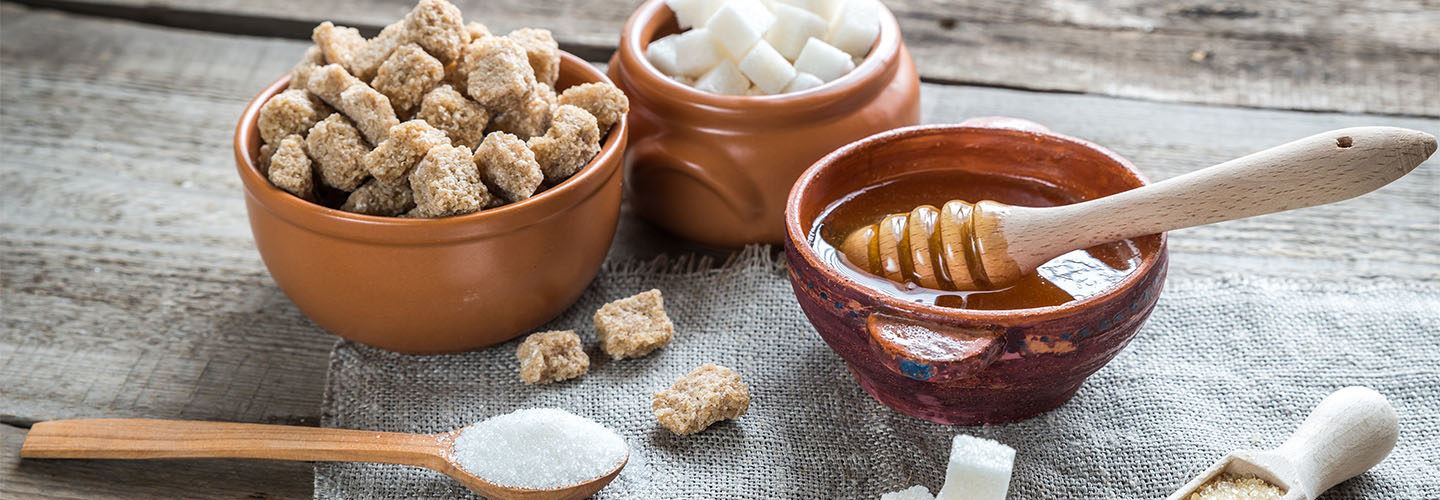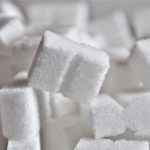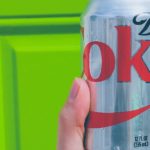See more content from Rick Johnson, M.D.:
-
- (January 6, 2020) Metabolic Effects of Fructose with Rick Johnson, M.D. | Part I
- (February 6, 2022) How Fructose Drives Metabolic Disease with Rick Johnson, M.D. | Part II
In this episode, Rick Johnson, professor of nephrology at the University of Colorado, explains how his research into the causes of blood pressure resulted in a change of research direction to focus more on how fructose has such profound metabolic effects. Rick begins by talking about the relationship between salt and high blood pressure, then provides a masterclass into uric acid, and then expertly reveals the mechanisms and pathways by which sugar (specifically fructose) can profoundly impact metabolic health. From there, he explains how he applies this information to real life patients as well as touches on some of the most promising ideas around pharmacotherapy that are being developed in response to the epidemics of fatty liver, insulin resistance, diabetes, and obesity. Furthermore, Rick gives his take on artificial sweeteners compared to real sugar, discusses cancer’s affinity for fructose, and much more.
Subscribe on: APPLE PODCASTS | RSS | GOOGLE | OVERCAST | STITCHER
We discuss:
- The connection between blood pressure and fructose that shifted Rick’s professional focus [4:00];
- The relationship between salt and blood pressure (and the role of sugar) [5:45];
- Defining fructose, glucose, and sugar [19:30];
- An ancient mutation in apes that explains why humans turn fructose into fat so easily [23:00];
- The problems with elevated uric acid levels, and what it tells us about how sugar causes disease [31:30];
- How sugar causes obesity—explaining the difference in glucose vs. fructose metabolism and the critical pathway induced by fructose [40:00];
- Why drinking sugar is worse than eating it [50:00];
- Unique ability of sugar to drive oxidative stress to the mitochondria, insulin resistance, and diabetes [54:00];
- Why cancer loves fructose [1:00:20];
- The many areas of the body that can use fructose [1:05:00];
- Fructokinase inhibitors—a potential blockbuster? [1:07:15];
- Treating high uric acid levels—Rick’s approach with patients [1:10:00];
- Salt intake—what advice does Rick give his patients? [1:16:30];
- How excess glucose (i.e., high carb diets) can cause problems even in the absence of fructose [1:21:00];
- Artificial sweeteners vs. real sugar—which is better? [1:29:15];
- Umami, MSG, alcohol, beer—do these have a role in metabolic illness? [1:33:45];
- Fructose consumption—Is any amount acceptable? Is fruit okay? Where does Rick draw a hard line? [1:38:45]
- How does Rick manage the sugar intake of his young kids? [1:43:00]; and
- More.
The connection between blood pressure and fructose that shifted Rick’s professional focus [4:00]
- It started with looking into the cause of high blood pressure
- The running theory for years was that the kidney has a defect in its ability to excrete salt and so that you end up retaining salt and that leads to elevated blood pressure
- Rick then figured out that when you raise uric acid in animals, they developed high blood pressure
- So what made uric acid go up? ⇒ Sugar, and particularly fructose, raised uric acid
“We started studying fructose and pretty soon we were so excited about what we were finding that we just kind of changed our research direction to focus more on how fructose has all of its metabolic effects.”
The relationship between salt and blood pressure (and the role of sugar) [5:45]
Does salt raise blood pressure?
- The prevailing thought is that too much salt elevates blood pressure
- And the advice would be to restrict the amount of salt intake
- But it isn’t really the salt amount that makes a difference, but the salt concentration
- When you eat salt, your serum osmolality goes up
- If you drink water in combination with eating salt, you can avoid this rise in serum osmolality and avoid the rise in blood pressure
- Rick’s 2018 study showed that drinking water with a salty meal will prevent a rise in blood pressure
Why it would be better to have a lower blood pressure?
- When your blood pressure is high, you have an increased risk for heart failure and stroke.
- As your blood pressure increases, you get a gradual increase in risk
- But when the blood pressure gets around 160 to 180…
{end of show notes preview}

Rick Johnson, M.D.
Rick is a professor of medicine in the Department of Nephrology at the University of Colorado since 2008 and he’s spent the last 17 years being a division chief across three very prestigious medical schools. An unbelievably prolific author, Rick has well over 700 publications in JAMA, New England Journal of Medicine, Science, et Cetera. He’s lectured across 40 countries, authored two books, including The Fat Switch, and has been funded extensively by the National Institute of Health (NIH). His primary focus in research has been on the mechanisms causing kidney disease, but it was in doing this that he became really interested in the connection between fructose (and fructose metabolism) and obesity, diabetes, heart disease, hypertension, and metabolic disease.





Hi Peter,
I’ve got low blood pressure 110/60 and have been adding salt to my water to avoid dizzy spells, I have found this particularly useful during a 5 day fast. Where can I find out more about the effects of salt on blood pressure?
@Kate Did you listen to this episode? I have not seen a more nuanced explanation of how salt might affect BP. It’s fascinating what is in the loop.
Short answer, if you want to decrease salt related rise in BP, take plenty of water before eating salty foods. If you want to increase, do the opposite? Low hydration before and during meals? Hydrate more between meals? That’s an uninformed extrapolation of Rick Johnson’s info. Take with many grain of…
OMG this was a mind blowing episode. I work in a dialysis unit. Amazing interview. Thank you, Thank you. Love your work.
Thanks for the fructose story. This stuff is so complicated but i think that when the cure comes it could well be a simple magic bullet like penicillin or statins. A fructose kinase inhibitor or aldose reductase inhibitor. Rick, what stocks should I buy. Pfizer? Just kidding. No seriously.
“a simple magic bullet like penicillin or statins”
Um..I don’t think those are good examples! There may turn out to be very few if any magic bullets in life. Like most weapons (levers of all kind) they need to be well-targeted and used with finesse to move towards desired outcomes.
But we all love the idea of simple solutions that might allow us to get past multi-factorial equations. Feels good!
My 30 year old son is starting to get gout attacks. He may be 5-10 lbs overweight, exercises but works long hours. His father started to have gout attacks in his early 20s before we found out he had Type 2 diabetes, which then progressed to kidney disease. Other than cutting out sugar what else can my son do to stop from following this path. His father’s family is hispanic, 2nd generation immigrants, most are overweight and type 2 and many of them have gout, especially the women. In addition to reducing sugar and alcohol consumption, what else can he do to keep his uric acid levels low?
Your son probably has gout as a part of the metabolic syndrome, like most of your family. Just cutting sugar is not going to do a whole lot. Just to make sure, when you say “5-10 Lbs overweight” You mean that’s what he needs to lose to get to a BMI lower then 25 or something else?
He need to do many things:
1. Cut all simple carbs (And I mean completely, All sodas, rice, potatoes, pasta, bread and so on). In addition to that he needs to cut the high purine foods as well.
2. He should exercise at least 4-5 times a week.
3. Get good sleep.
4. Get rid of any stress in his life.
5. Probably start taking metformin if his fasting insulin is high (even within the normal range).
6. Take allopurinol to lower the uric acid.
Hope this helps. for more info there are many FB groups for that.
He could favor more vegetarian proteins instead of meat; he should particularly avoid high-purine meats such as organ meats (including “sweetbreads”) and some fish (anchovies, herring, and mackerel), as well as brewers’ yeast; he could eat more dairy, and get plenty of fluids.
Cannot sing your praises enough (though I know you aren’t in this for said praises). Excellent podcast. So relevant to what collectively ails us. I was absolutely fascinated by the evolutionary tale told by Dr. Johnson regarding the uricase mutation and how it provided a selective advantage at the time, but obviously doesn’t in today’s food environment. You’ve got this absolutely freakish amount of dedication to your craft, you’ve got the ability to break it down into something understandable to people outside the realm of medicine/science, the humility to admit when you don’t know something, and you surround yourself with the very best and brightest because knowledge is a collaborative process and no one person can ever know it all.
Great episode. Thank you!
Just wondering if coconut water is considered fruit juice?
Presumably not: its fructose (and sugar generally) is nugatory.
Peter, another great podcast. After listening to it, I looked at lab results for the last four (4) years and my uric acid was 7.5, 7.0, 5.9, and most recently 4.8. My BP has steadily decreased over that time period. About two (2) months before the last lab I went on a zero-sugar/very-low-carb diet as a will-power test. The results make sense to me now. Perhaps an unintended consequence but I’m elated with the results.
Great episode! Just wondering your current thoughts about the work of Thomas Seyfried. I got the feeling that you did not particularly agree with his hypothesis when you interviewed him. Dr. Johnson seems to be more on Dr. Seyfried’s bus.
Peter did a podcast with Seyfried: go back and listen!
So despite glucose getting converted to fructose/fat storage in the body.. do I understand correctly that a bottle of Coke that uses cane sugar (sucrose) would not cause the same uric acid response like a can of Coke that uses HFCS (fructose+glucose)? Even though sucrose is also fructose and glucose bonded together?
Any thoughts on the papers mentioned in the debate between Alan Aragon and Dr. Robert Lustig that suggests the evidence to condemn fructose is not as solid as it is made to appear?
https://www.sciencedirect.com/science/article/pii/S0021915013006199
https://www.ncbi.nlm.nih.gov/pubmed/19592634
https://www.ncbi.nlm.nih.gov/pubmed/18996880
https://www.ncbi.nlm.nih.gov/pubmed/20047139
https://www.ncbi.nlm.nih.gov/pubmed/20086073
https://www.ncbi.nlm.nih.gov/pmc/articles/PMC2991323/
For anyone wanting more information on how salt drives endogenous fructose production, a quick google search yielded this. I was certainly interested in a deeper dive into that when it came up in the interview.
https://www.ahajournals.org/doi/10.1161/HYPERTENSIONAHA.118.12150
Excellent reference. Thank you!
Excellent Podcast!!! Certainly one of my favorites. I was quite interested in the idea of a Fructokinase inhibitor being developed. My question is the supplement Luteolin, is it possibly in that arena? Any reliable studies?
https://www.ncbi.nlm.nih.gov/pmc/articles/PMC5546795/
Would have loved to hear about Allulose and Erythritol specifically.. Hopefully you have Rick back again and can cover those topics and more. This was a great episode, thank you! Will be listening for a second time soon.
This podcast was mind blowing. So many nuggets to tell patients… Even in dermatology. Thank you for the level of detail you discussed.
How does fasting cause hyperuricemea and yet lower blood pressure?
Fasting has so many effects on many body systems. Fasting cause transient hypeuricemia, not a permanent one, due to the body using purine rich tissue for food in the first stage of the fast. The blood lowering effect is due to a few facets of fasting, one of them is low salt intake, hormonal changes also support that despite the hyperuricemia caused by the fast so the total of all interactions by fasting cause a lowering of the blood pressure.
Wow!! This was an amazing and enlightening conversation. So much information, I will definitely listen to this a few times. Dr. Johnson has done so much great work and presents his data in such an easy to understand manner. Thanks Dr. Attia for making sure no listener is left behind by making sure new words & concepts are defined. Awesome podcast!
Hi Docs,
Thank you for a great podcast!
Dr. Johnson advised against fruit juice. What are his thoughts about fruit smoothies?
For breakfast, I usually make a smoothie of – a. 8 oz of frozen wild blueberries, 6 oz of frozen mixed veggies, 4 oz of coconut milk, and 6 oz of water. Would this smoothie, in general, be considered OK for middle aged guy with mild metabolic syndrome (borderline high cholesterol, and BP of 150ish/90ish)?
To further implement Dr Johnson’s recommendations, which of his books is the better choice, The Fat Switch, or The Sugar Fix: The High-Fructose Fallout That Is Making You Fat and Sick.?
Thanks!
John R.
John, to fight the metabolic syndrome, when you already have it, it takes quite a lot more the preventing it from appening. The idea with fructose food sources is to get the least of it as possible, and in as natural manner as possible, meaning actually chewing on the apple rather then making a smoothie or juicing. If you can, avoid it completely!!
Also, focusing only on nutrition will almost always not get you to were you want to be. Exercise, sleep optimization, food (quality, quantity, fasting) and stress management all play a major role in managing healthy life style and can be done at an absolute zero cost!!!! All the rest such as supplements and further lifestyle optimizations are for the 2-5% of the effect unless you have a specific medical issue such as hyperuricemia.
Brilliant podcast. Listened twice. Immediately bought the Kindle version of Dr. Johmson’s “The Fat Switch”. Was more than a little surprised to see the close association with Joseph Mercola, including the book having been published on Mercola’s website along with his anti-vax quackery. Not sure what to think now. Wish I could at least get my 10 bucks back.
This is an awesome episode, I listen twice and plan to listen to it a few more times.
I listened to this podcast (twice) and think I need to go back to medical school (after over 40 years since I graduated) except I know they’re not teaching this in medical school yet. So I’ll listen again! (Or study the show notes which are excellent.)
This was a terrific podcast episode. Thank you so much for the clearly presented information. It should perhaps be mandatory listening for many people. I’m going to listen to it again!
Peter,
I’m surprised you did not ask about how drinking Topo-Chico could affect the body metabolism. I know you are a great fan of drinking it. Can you briefly explain why?
On top of that, why you did not ask Prof. Johnson about the benefits/side effects of drinking mineral water?
I’m guessing you did not wanted to put the topic on the table until you double think and double read about it. Now enough time has passed. So the question is, what are the benefits/side effects of drinking Topo-Chico? When and how much should we or can we drink it?
Thank you very very much. This episode was amazing!
Yes, this was your one and only episode you were drinking only plain water. First time ever you have not drinker topo-chico!
Circular Discussion. So no fruit for you…
What I loved about this podcast most was the questions raised by Peter…